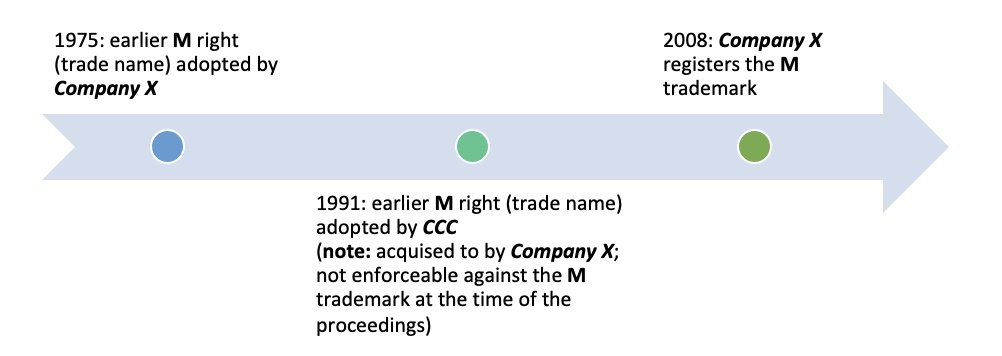In her ‘Happy new year‘ (30 December 2022) post on this blog ‘Trademarks in Luxembourg‘ Verena von Bomhard shortly referred to the ECJ’s Classic Coach (C-112/21) decision of 2 June 2022 as relating to ‘the complex relationship between trademarks and earlier unregistered local and trade name rights‘. In the meantime, the matter returned to the Hoge Raad (HR), the Dutch Supreme Court, for a final decision on 8 September 2023, a good reason for an update and overview of the outcome.
The ECJ gave a concise overview of facts relevant to the case (see points 18-28). For the sake of brevity of this post I do not iterate the detailed facts of the case, but solely outline in general the situation at hand to illustrate the final outcome of the case.
The detailed facts are quite extensive and do not fit in the format of this short publication. Fathoming the facts of the case as well as the involved decisions of lower courts who dealt with and appreciated the facts is also far from easy, especially due to the anonymization of plaintiff (a Dutch limited liability company who invoked its trade mark registered in the Benelux in 2008) and persons involved in the matter.
Relevant to mention here is that the company name of plaintiff includes the family name of said persons, whilst the invoked word trade mark is equal to that family name. The family name can be derived from the Benelux trade mark registration number (being 836581), which is revealed by the Court of Appeal The Hague in its decision on appeal. Hereinafter the plaintiff company is nevertheless referred to as X to keep the anonymization as much as possible in place. The allegedly infringing defendant – a contractual partnership according to Dutch law – is Classic Coach Company (hereinafter referred to as CCC). And M represents the trade mark invoked by X. Both companies – whose founders were brothers – provide touring car services.
The case concerned the following situation: defendant CCC used an M trade name for an only locally operated business (let’s say the Netherlands). X disagrees with said use and attacks CCC’s use of M on two grounds: an own trade name regarding M which precedes CCC’s trade name and a Benelux trademark registration for M which is of later date than CCC’s M trade name.

This ‘squeezy‘ situation is solved by the ECJ as follows. Trademark owner X cannot successfully attack CCC for trademark infringement, because the trade mark right M comes with the restriction that it cannot be enforced against an only locally used trade name M. Stated positively (but that’s not the interpretative language that the ECJ could use): CCC can continue the use of the trade name M.
The defense by X that CCC enjoys only such protection if (and only if) CCC can successfully counterattack X’s M trademark use (for example on the basis that the use as a trademark of M, a trade name which was already in use, is unlawful), is unfounded and needs to be rejected, so rules the ECJ eloquently on several grounds. One of them being (already) that the wording of Article 6(2) of Directive 2008/95 does not in any way provide that the third party (CCC) must be able to prohibit the use of that mark (X’s trademark M), to be able to assert the same right (for the trade name M of CCC) against the proprietor X of the later mark M.
And what if X would be entitled to trade name protection for M predating the trade name protection for M of CCC? The ECJ clarifies that CCC may still be granted a protected position as a third party under Article 6(2) of Directive 2008/95 – in other words the restriction on the trademark owners’ prohibition right remains in place – to the extent that, under the laws of the Member State in question (the Netherlands in this case), the proprietor of the trade mark and of the even earlier right (being X) may no longer, on the basis of its even earlier right, prohibit the use by the third party (CCC) of its more recent right (trade name M). Such situation was accepted by the Court of The Hague in this matter as a result of limitation in consequence of acquiescence.
In its decision of 8 September 2023 the HR rejected the (remaining) cassation complaints of the trade mark owner X applying the ruling of the ECJ as explained above.
_____________________________
To make sure you do not miss out on regular updates from the Kluwer Trademark Blog, please subscribe here.
Kluwer IP Law
The 2022 Future Ready Lawyer survey showed that 79% of lawyers think that the importance of legal technology will increase for next year. With Kluwer IP Law you can navigate the increasingly global practice of IP law with specialized, local and cross-border information and tools from every preferred location. Are you, as an IP professional, ready for the future?
Learn how Kluwer IP Law can support you.


